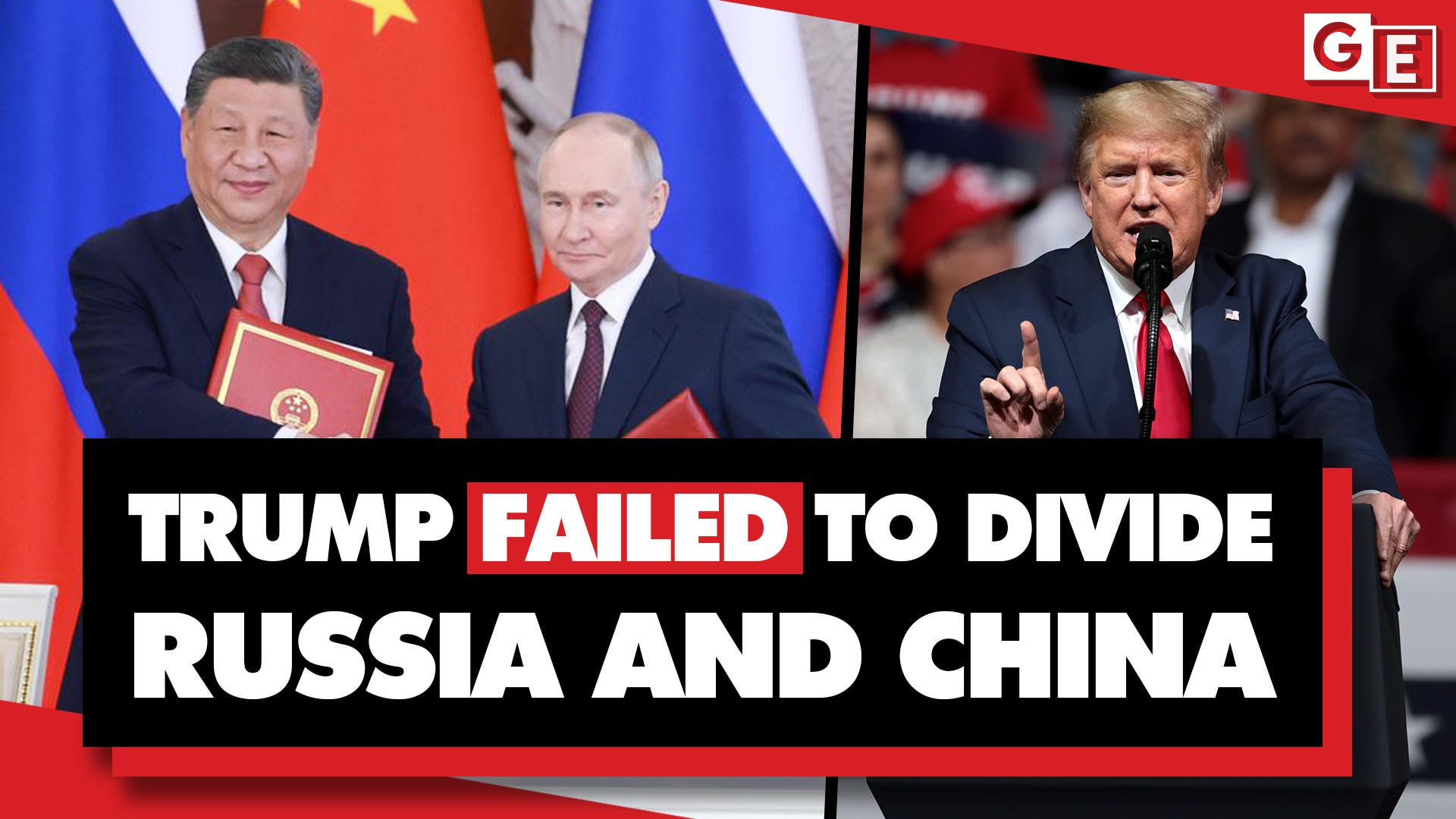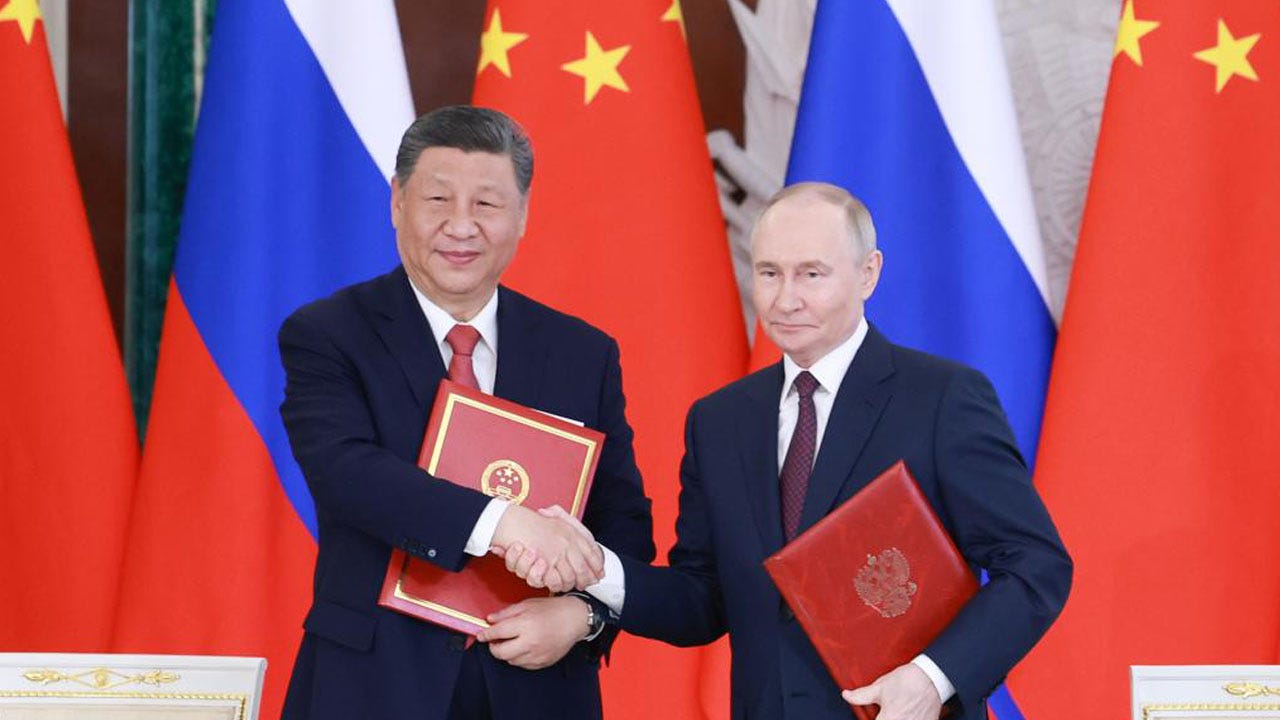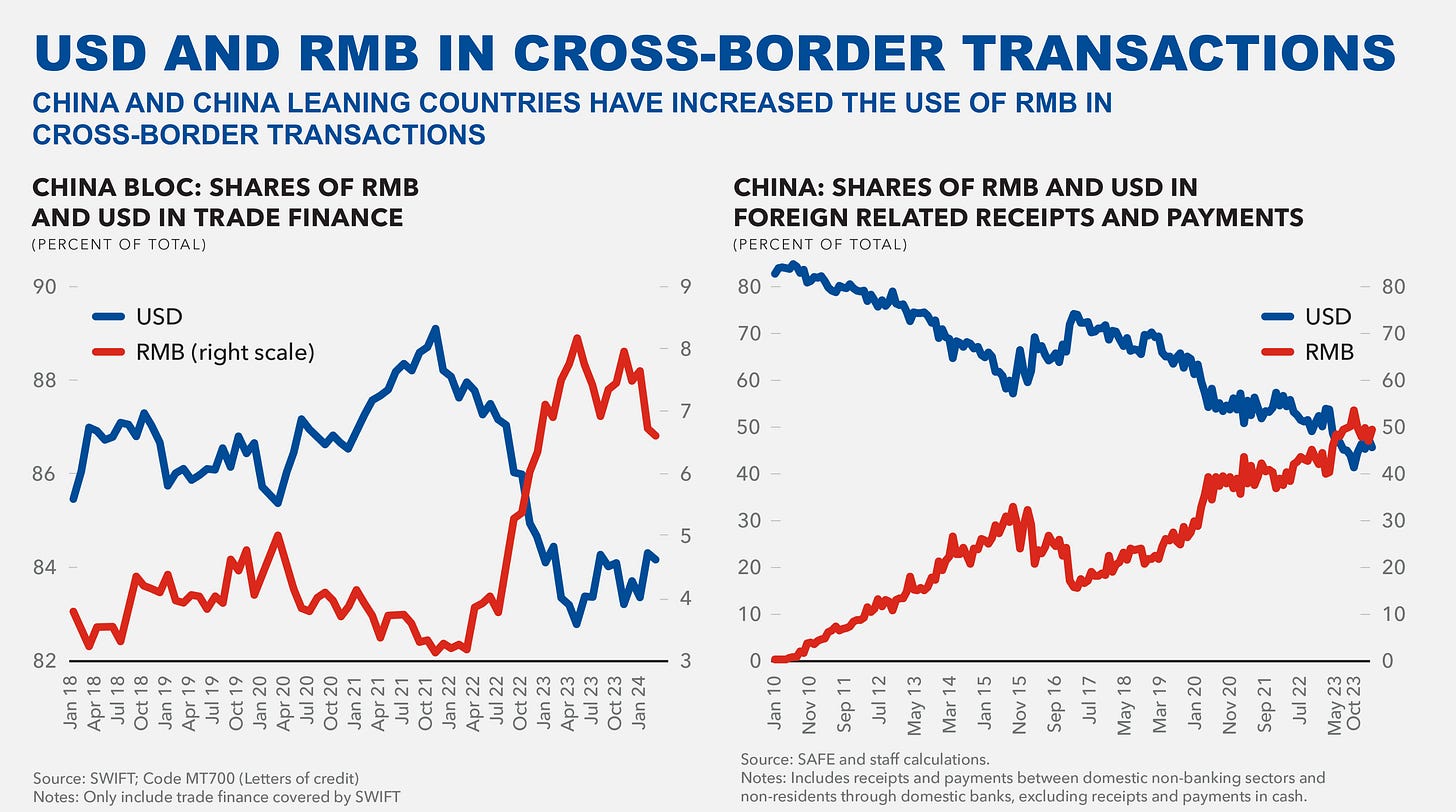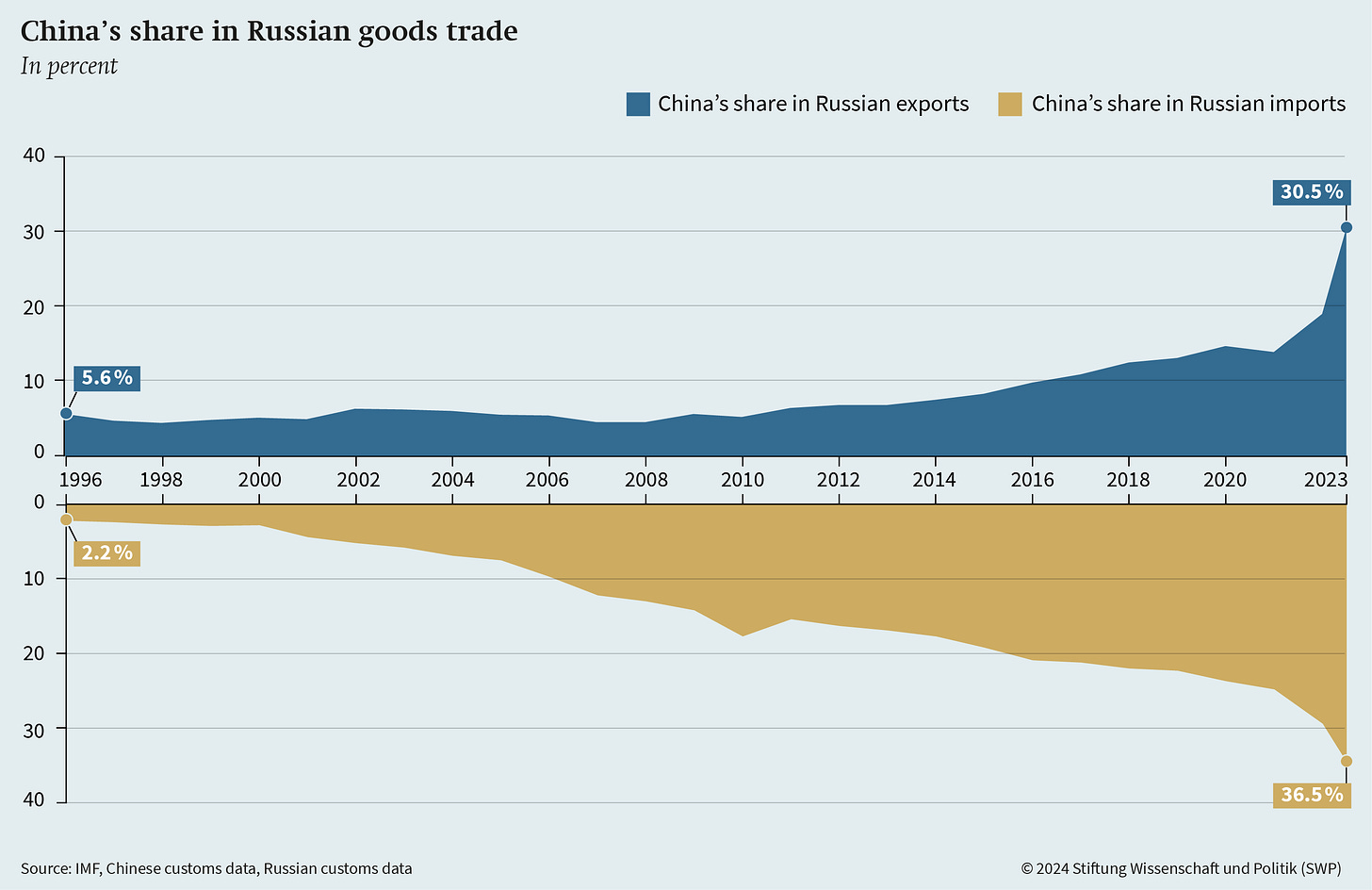Trump's far-fetched attempt to divide Russia and China is clearly failing
Donald Trump claimed he would "un-unite" Russia and China, but the US divide-and-conquer strategy is failing. Xi and Putin reaffirmed their bilateral relations are at "the highest level in history".
US President Donald Trump claimed he would "un-unite" Russia and China. However, this divide-and-conquer strategy -- which prominent US officials like Henry Kissinger have advocated since the 1970s -- is clearly failing.
In a meeting in Moscow celebrating the 80th anniversary of their nations' shared victory in World War Two, Presidents Xi Jinping and Vladimir Putin reaffirmed that "China-Russia relations have reached the highest level in history".
In a lengthy statement, Beijing and Moscow vowed to "jointly resist any attempts to interfere with and disrupt the traditional friendship and deep mutual trust between China and Russia".
Trump admin wanted to "partner" with Russia against the China "threat"
The US government considers China to be the greatest threat to its global dominance. This is a bipartisan position, shared by both Republicans and Democrats.
One significant difference, however, is that Democrats like former President Joe Biden also consider Russia to be a major threat to the US, whereas some Republicans, and in particular Donald Trump, do not see Moscow as a threat.
Instead, the Trump administration proposed that the US should try to "partner" with Russia against China, in a far-fetched attempt to isolate and weaken Beijing.
Trump claimed just a few days before the 2024 presidential election that he could divide Russia and China, telling the right-wing talk show host Tucker Carlson (all emphasis added):
... the one thing you never want to happen is you never want Russia and China uniting. We united them, because of the oil. We united them. Biden united them. It’s a shame, the stupidity of what they have done. I’m going to have to un-unite them, and I think I can do that, too. I have to un-unite them.
This idea was echoed by Trump's secretary of state, Marco Rubio.
Rubio is a hard-line neoconservative hawk, and he has frequently fearmongered about Beijing. In his Senate confirmation hearing in January, Rubio called the Communist Party of China "the most potent and dangerous near-peer adversary this nation has ever confronted". He argued that US-China competition "will define the 21st century".
This is why, when Rubio held diplomatic talks with his Russian counterparts in Saudi Arabia in February, he said Washington was "beginning to engage in identifying the extraordinary opportunities that exist, should [the Ukraine] conflict come to an acceptable end, the incredible opportunities that exist to partner with the Russians, geopolitically, on issues of common interest, and frankly economically".
Kissinger argued the US should eventually ally with Russia against China
Marco Rubio is one of just two people in US history who have simultaneously served as both secretary of state and national security advisor. The other was Henry Kissinger, a notorious war criminal.
Kissinger helped oversee the normalization of relations between the US and China. In 1971, he took a secret trip to Beijing, where he set the stage for the historic trip the following year by President Richard Nixon.
At that time, Washington saw an opportunity to take advantage of the Sino-Soviet split. It essentially allied with Beijing against Moscow.
Five decades later, the Trump administration has sought to invert this "triangular diplomacy", hoping to "partner" with Moscow against Beijing.
Analysts have often referred to this strategy as a “reverse Kissinger”, but in reality Kissinger himself had advocated the idea from the very beginning.
In a meeting with Nixon in 1972, just a week before the US president visited China, Kissinger clearly stated that Washington was playing a cynical "balance of power game". He argued that, in the future, the US would likely "wind up leaning towards the Russians against the Chinese".
Kissinger told Nixon the following, according to a transcript of the February 14, 1972 meeting published by the State Department's Office of the Historian:
I think, in a historical period, they [the Chinese] are more formidable than the Russians. And I think in 20 years your successor, if he’s as wise as you, will wind up leaning towards the Russians against the Chinese. For the next 15 years we have to lean towards the Chinese against the Russians. We have to play this balance of power game totally unemotionally. Right now, we need the Chinese to correct the Russians and to discipline the Russians.
When Trump won the presidential election in 2016, Kissinger advised Trump's team to try to ally with Russia against China, according to a report in the Daily Beast.
Nevertheless, this strategy failed, for several reasons.
One factor was internal US pressure. During Trump's first term, the Democrats aggressively pushed the Russiagate conspiracy, claiming without evidence that the Republican president was supposedly a “puppet” of Putin, as Hillary Clinton put it. This encouraged Trump to take an even even more aggressive line against Moscow.
US domestic politics and intense media pressure combined with Western sanctions on Russia, the conflict in eastern Ukraine, Moscow's increasing foreign-policy alignment with the Global South, and Russia's growing trade relations with China, which all made it implausible for Washington to significantly improve its relations with Moscow.
When Trump returned to the White House for his second term in January 2025, he and Rubio thought they could bring back the Kissingerian playback.
This strategy was always likely to fail, however, because China and Russia have a very close partnership today. This situation is not like the 1970s, when China and the Soviet Union were bitter rivals.
Putin and Xi affirm "highest level" relations in history
China's President Xi Jinping took a trip to Russia in May, where he and Vladimir Putin announced that their countries' relations have never been better.
Xi was invited to Moscow to celebrate Victory Day on May 9. This marked the 80th anniversary of the Soviet Union's defeat of Nazi Germany in World War Two.
This conflict is known in China as the World Anti-Fascist War (世界反法西斯战争, shìjiè fǎnfǎxīsī zhànzhēng), and in Russia as the Great Patriotic War.
The USSR contributed by far more than any other country to the destruction of the genocidal Nazi empire. More than 26 million Soviets died in WWII. Even the Washington Post once acknowledged that “the Soviet Union saved the world from Hitler”.
Similarly, 14-20 million Chinese died fighting against the pro-fascist Japanese empire in WWII, although their sacrifice is often forgotten in the West.
Russian state media noted that Putin thanked Xi for inviting him to China in August to commemorate the anniversary of the defeat of imperial Japan.

Putin began a press conference on May 8 by describing Xi as his "dear friend". He said China-Russia "relations have reached the highest level in history, being self-sufficient and independent from internal political factors or momentary global agendas".
"The comprehensive partnership and strategic cooperation between Russia and China are built on the unshakable principles of equality, mutual support and assistance, as well as the unbreakable friendship between the two states and two nations", Putin emphasized.
Xi referred to the two nations as "friends of steel”. He noted that, as president of China, he has visited Russia more than any other country. This was his 11th trip.
Xi described the moment as a time of "great growth and great leapfrog in China-Russia relations", praising the "'high-speed train' of China-Russia mutually beneficial cooperation", according to a readout published by China's foreign ministry.
"In the face of global, epoch-making and historical changes", Xi said, Beijing and Moscow are working to "continuously promote an equal and orderly multipolar world", through multilateral institutions like the United Nations, BRICS, and Shanghai Cooperation Organization (SCO).
During the trip, China and Russia signed more than 20 bilateral deals. The Chinese foreign ministry maintained that "the two sides are good neighbors that cannot be moved away", and "true friends" whose relationship "is not subject to restrictions from any third party".
China-Russia joint statement vows close friendship, opposes US "dual containment"
The closeness of China and Russia was reaffirmed in a joint statement published on Victory Day, on May 9.
The full statement was published in Chinese by Beijing's foreign ministry, but there is no official English translation.
Journalist Fred Gao published an unofficial translation. It is more than 8,000 words long when translated into English.
"China-Russia relations have reached the highest level in history and continue to develop stably in all directions, setting an example for building a new type of international relations and becoming a model for cooperation", the two sides stressed.
This declaration was similar to a joint statement signed by China and Russia in May 2024, which commemorated the 75th anniversary of their diplomatic relations.
Fred Gao noted that one key difference was that this 2025 statement included "more direct criticism of the US". It featured two mentions of the United States, alongside the more ambiguous language criticizing "certain countries".
The following are some of the main points addressed in the 2025 declaration. (All quoted text is from Gao's unofficial translation.)
US "dual containment" strategy
China and Russia clearly referenced Washington's attempt to divide the countries, stating in no uncertain terms that the Trump administration's Kissingerian strategy will fail:
The two sides firmly oppose efforts to incite other countries to adopt hostile positions towards China and Russia around the world and to smear China-Russia cooperation. China and Russia will strengthen coordination and resolutely respond to the US implementation of "dual containment" against China and Russia.
The two sides note that the United States and its allies are attempting to advance NATO's eastward expansion to the Asia-Pacific, create "small circles" in the Asia-Pacific region, draw in countries of the region to implement their "Indo-Pacific Strategy," and undermine regional peace, stability, and prosperity.
The statement added, "The two sides strongly condemn the hegemonic practices of certain countries and their allies".
Common interests, not subject to third party influence
Beijing and Moscow wrote that they have "extensive common interests", which are "complementary" and not "subject to the influence of any third party" (like the United States):
For a long time, China and Russia have formed extensive common interests, and their overall development goals are complementary, constituting a solid foundation for cooperation in various fields. China-Russia relations have unique strategic value and strong internal driving force, neither targeting any third party nor subject to the influence of any third party. Facing the intertwined international situation of change and turbulence, the two sides will maintain strategic determination, always regard each other as priority cooperation partners, jointly resist any attempts to interfere with and disrupt the traditional friendship and deep mutual trust between China and Russia, contribute to each other's development and revitalization, and inject stability and positive energy into the world.
The comprehensive statement called to deepen Chinese-Russian cooperation in trade, investment, energy, infrastructure construction, industrial production, supply chains, technology, research, culture, media, sports, and tourism.
International law-based order centered in the UN
China and Russia alluded to the attempt by the US-led West to replace the international-law based order, centered in the United Nations, with the vague concept of what Washington calls the "rules-based international order”.
Beijing and Moscow committed to uphold "international law, particularly the purposes and principles of the UN Charter", and to defend "the international system with the United Nations at its core".
Multipolarity, through BRICS and Shanghai Cooperation Organization
Both countries expressed strong support for multipolarity and what they called "true multilateralism". They wrote:
The two sides note that building a more equitable and sustainable multipolar world order is the trend of the times. Certain countries, addicted to hegemonism and neo-colonialism, implement aggressive policies and limit the sovereignty of other countries and suppress their economic and technological development to protect their own privileges, which does not align with the trend of world multipolarity and democratization of international relations.
In this vein, Beijing and Moscow vowed to deepen "BRICS cooperation in the fields of trade, finance, minerals, digital economy, public health, technological innovation, artificial intelligence, connectivity, governance, and other areas".
They also called to "strengthen close coordination within the framework of the Shanghai Cooperation Organization" (SCO).
Anti-fascism and anti-racism
Given that the 2025 joint statement came on Victory Day, China and Russia began the document detailing how the countries collaborated in the fight against fascism in World War Two.
Beijing and Moscow stressed that they are opposed to the "resurgence" of racism and fascism in the 21st century, writing:
The two sides are committed to preventing the resurgence of anti-human Nazi and racial superiority ideologies, and will continue to jointly resist the beautification of Nazis and their accomplices, the rise of neo-Nazism, the revival of militarism, and acts that encourage various forms of racism, racial discrimination, and xenophobia.
Ahead of his trip to Moscow, President Xi published an article in the Russian media that indirectly compared the "hegemony" of the US empire to the "arrogant fascist forces" of the 1930s and ‘40s, the Financial Times noted.
“The just forces of the world, including China and the Soviet Union, fought bravely and defeated the arrogant fascist forces side-by-side”, wrote Xi, adding, “80 years later, unilateralism, hegemony and bullying are extremely harmful. Humanity is once again at the crossroads”.
Dedollarization
On the subject of dedollarization, China and Russia noted in the joint statement that they are "important trading partners for each other", and they pledged to "enhance the level of financial cooperation, expand inter-bank exchanges, [and] strengthen local currency settlement".
Both sides likewise vowed to help "BRICS countries to strengthen research and cooperation on bilateral trade settlement in local currencies, international financial architecture reform, [and] sustainable development".
China already uses its own currency, the renminbi or yuan, in slightly over half of its cross-border transactions, as of 2023.
China and Russia deepen their bilateral trade
During Xi's visit to Moscow, Putin highlighted that China has become Russia's number one trading partner. In 2024, their bilateral trade reached a new high, worth $245 billion USD.
Putin stressed that most of the trade between China and Russia has been de-dollarized.
"The timely and well-coordinated measures taken by both Russia and China to conduct bilateral payments in national currencies also contribute significantly to the deepening of our commercial ties", he said. "As a result, nearly all Russian-Chinese trade transactions are now carried out in rubles and yuan".
"In effect, a stable and resilient mutual trade system has been established — one that is reliably shielded from the influence of third countries and adverse fluctuations in global markets", Putin added, in an indirect reference to US sanctions.
Trade between China and Russia has grown substantially in recent years. In 2010, just around 5% of Russia's exports went to China; as of 2023, the figure was 30.5%. Similarly, in 2000, roughly 3% of Russia's imports came from China; in 2023, it was 36.5%.







During his welcome speech to the Chinese President on May 8, I remember the Russian President mentioning their losses in WW2 as 27 million Russians and 37 million Chinese. Those numbers are about 100 times greater than the losses of the Allies who only entered the conflict in June 1944.
Holllywood still tries to make us believe the Allies won the war.
Unfortunately the neocolonial alkiance is determined to do the only thing it knows how to do these days: fling missiles at anyone making progress peacefully and helping others to do so. Because that's at "threat" to the prospects of western oligarchs getting even richer.